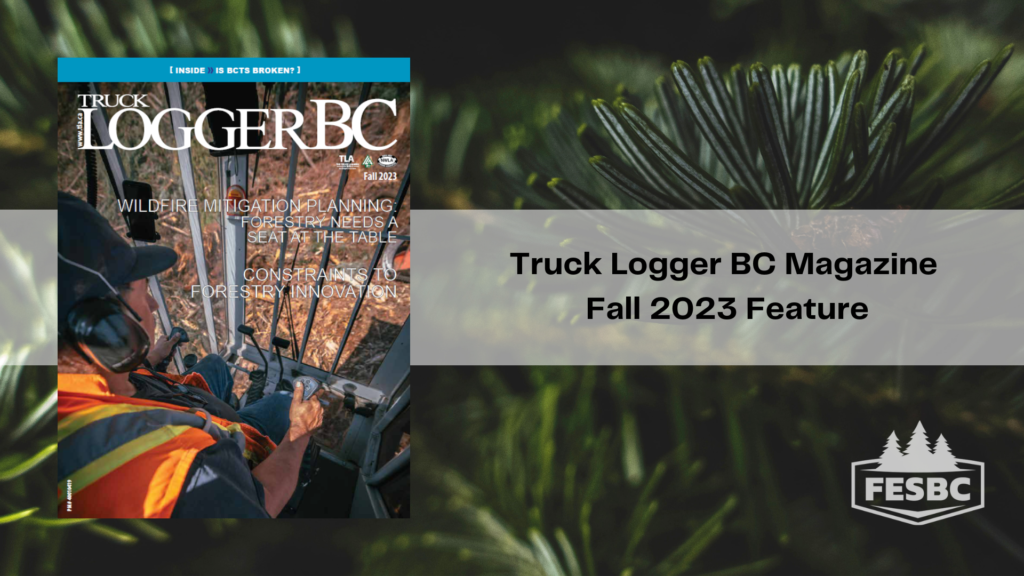In the Fall 2023 issue of the Truck Logger BC Magazine, Jean Sorensen examines innovation in forestry and what is holding it back, in an article featuring various industry experts, including the Forest Enhancement Society of BC’s (FESBC) Executive Director, Steve Kozuki.
The article, titled “Constraints to Forestry Innovation”, discusses innovation in B.C’s forestry sector and its importance to stay competitive, especially against larger manufacturers. It also emphasizes the need for a supportive business environment and policy stability to encourage innovation.
The forestry industry in BC is facing challenges related to fibre supply uncertainty, which affects the adoption of new technologies and investments. Companies are exploring innovations like LiDAR inventory mapping, the use of drones, and remote-controlled equipment. These innovations are seen as essential, and the article explores their feasibility in the current climate.

In the article,
FESBC Executive Director Steve Kozuki said over the past five years they have funded the utilization of five million cubic metres or roughly 100,000 truckloads of post-harvest residuals that would have been abandoned or burned.
Those five years brought a legacy of operating data. Logging contractors have tried whole log (pulp or biolog) sorts, chipping or grinding fibre at the roadside or landing, baling slash (but it still has a lot of air and costs to transport), central reload sites and sort yards, and barging from the mid and north coast. According to Kozuki, each method has pros and cons and trade-offs, but most contractors favoured transport of fibre in log form or chip/grind in the bush.
